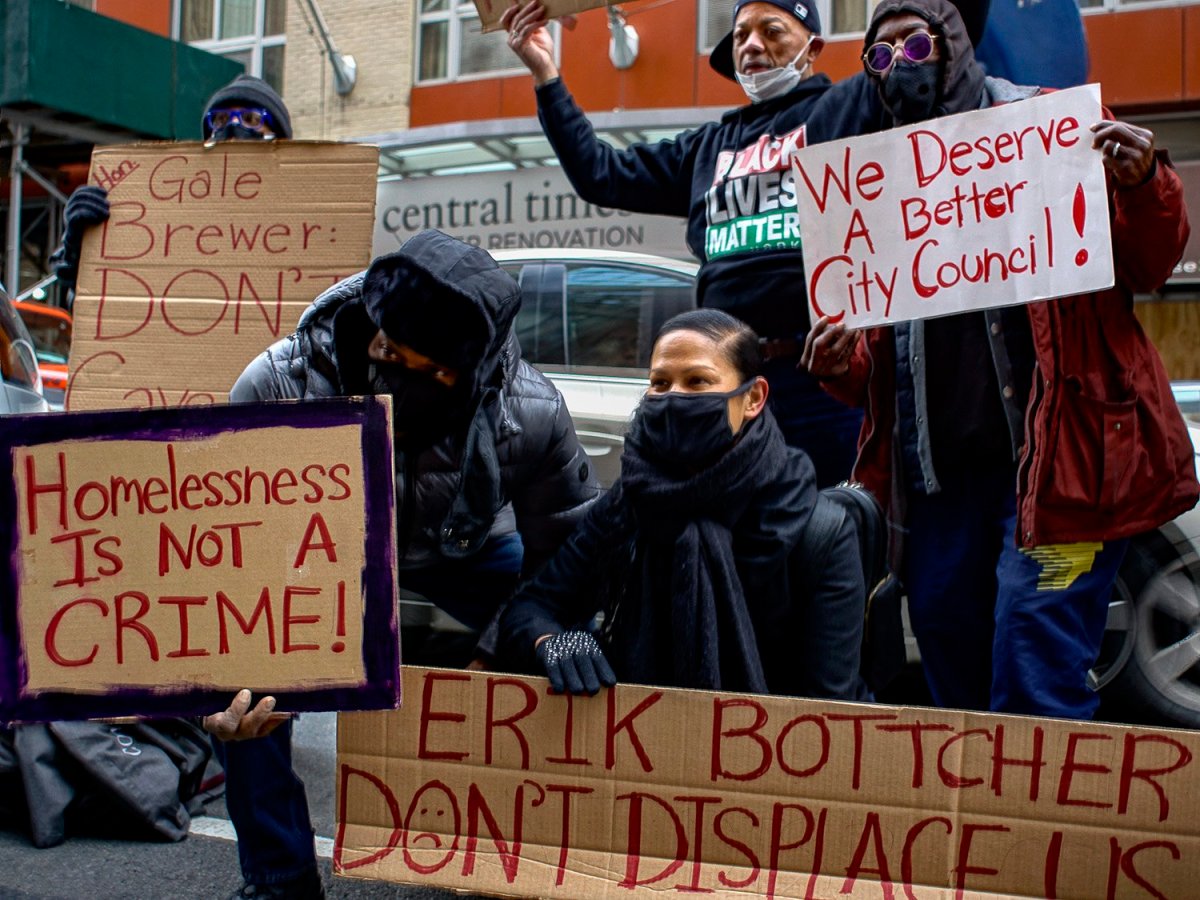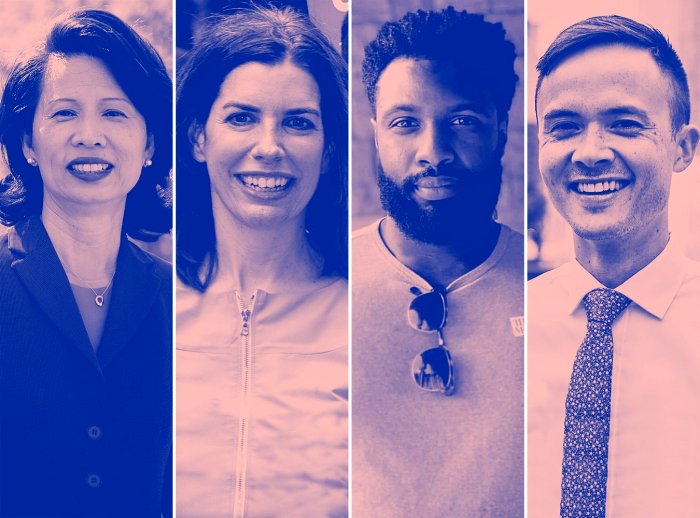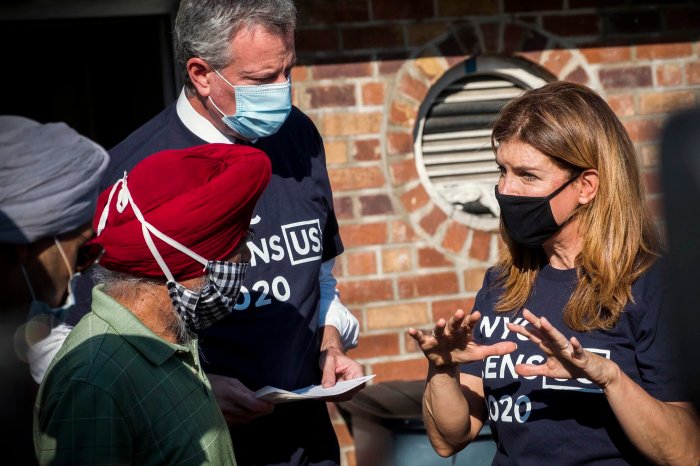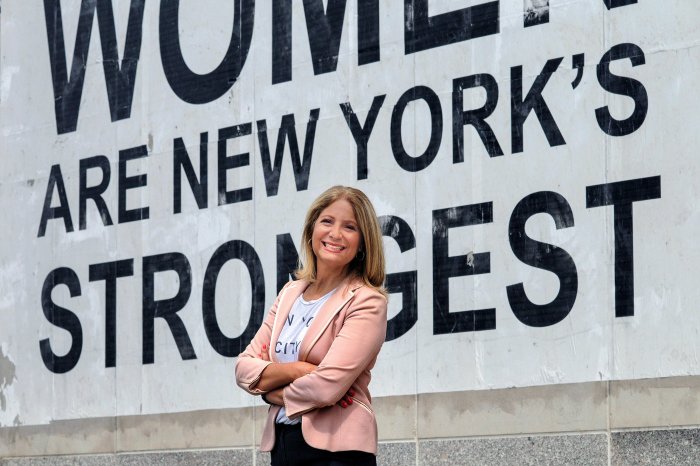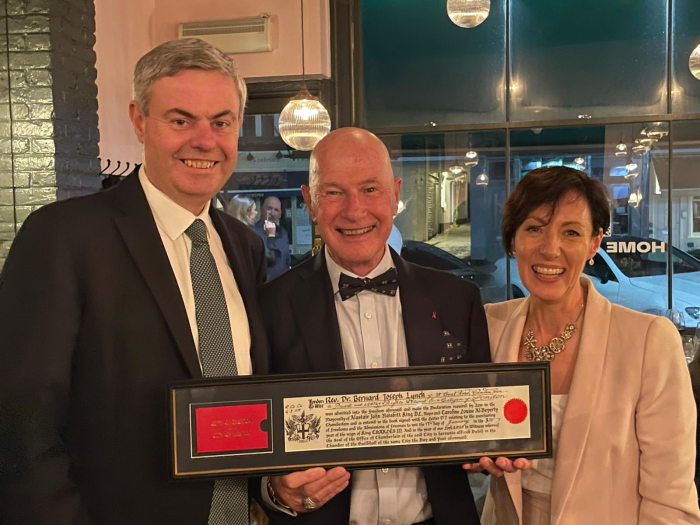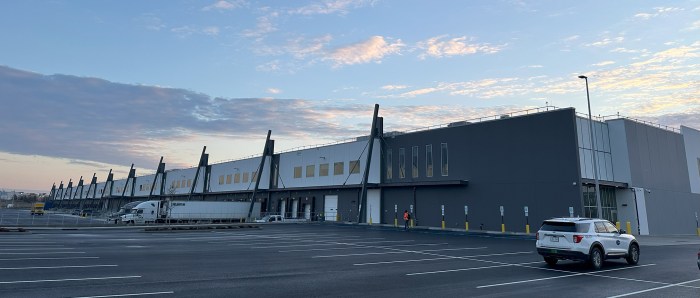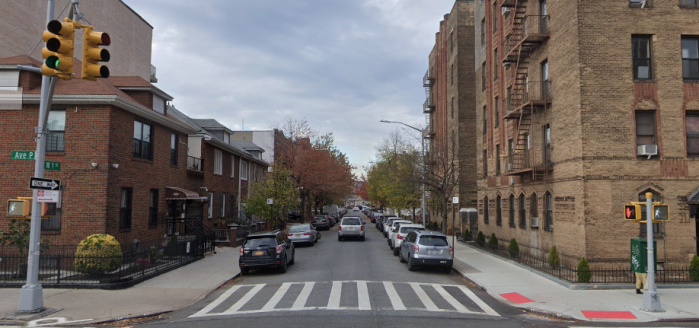City Council candidate Marni Halasa stood boldly outside the Hotel Central last Tuesday, holding a sign that read, “Erik Bottcher don’t displace us” and flanked by seven of her supporters. Minutes later, a van arrived and honked at them to move out of the way so it could make deliveries. Halasa and her supporters had nowhere else to stand in front of the hotel, so they moved on to the street, where a succession of cars honked at them when they got too far from the curb.
Halasa and her supporters took it in good spirits. They were used to this, as many of them are homeless.
Halasa, 54, is running to replace term-limited Council Speaker Corey Johnson (D-Chelsea, Hell’s Kitchen) in District 3. She came to protest reported efforts by the Hell’s Kitchen Neighborhood Coalition, Manhattan Borough President Gale Brewer (D) as well as her City Council opponent Erik Bottcher, the Chief of Staff to Corey Johnson, to move homeless residents out of hotels in the area.
36th Street has seen a growth in the homeless population being housed in hotels. The coalition has made public appearances stating their opposition to the temporary shelters is rooted in safety concerns regarding drug use and aggressive panhandling. They have distanced themselves from similar opposition efforts on the Upper West Side where debates regarding homeless shelters have grown divisive.
Halasa, however, isn’t buying it. She believes that their opposition to the homeless shelters is less about safety concerns and is more about something else.
“Honestly I think it’s racist NIMBY-ism. They don’t want them in their backyard. And yes I think they’re having some incidents but if they’re incidents, then you have to manage this population that are in need,” she said.
But Leslie Boghosian Murphy, a member of the Hell’s Kitchen Neighborhood Coalition and also running for City Council in District 3, doesn’t see it that way. Murphy sees this as an unfair burden for both the homeless and locals, and wants the residents and subsequent resources spread around to make it safer for all.
Murphy responded to Halasa’s claims in a statement. “Our goal at HKNC is to work with the city to get our temporary residents the attention and support they need while simultaneously keeping our neighborhood safe and all residents out of harm’s way. Unfortunately, when the temporary shelter residents moved to Hell’s Kitchen, desperately needed social services didn’t move with them. Placing over 800 single men, many who have mental health and substance abuse issues and without help they need, within a square block has resulted in a dangerous situation for everybody. This is not a fight against the homeless, this is a fight against mismanagement,” it read.
If elected, Halasa has a plan to alleviate the issues plaguing the temporary shelters in the area. She wants to convert empty hotels and buildings into SROs or Single Room Occupancy units, which her opponent, Murphy, also supports. “Regarding controversial media speculation about violence, drug use, and public urination, what that shows us is that shelter hotels do not provide indoor community spaces or enough supportive services, like detox or 12-step programs. We also need to fight for open bathrooms as much as we fight for open streets,” she said.
Michael Whiterspoon, 61, is homeless and is sheltered in the Hotel Central. He used to live in the Bronx with his girlfriend and their child, but eventually his drug addiction and bipolar disorder forced him out. ”I love that child that much. So I sacrifice. That’s what I did.” he said.
He feels people like him are incidental to the raging debate over the hotels. Witherspoon spoke calmly, his purple tinted sunglasses sitting slightly askew tilting to the left on his nose. “You know what it is to hold that story you want to tell someone but there’s no one that has the trust to tell. That’s a hurting situation, man you know you want to cry,” he said. He doesn’t feel sorry for himself, however. “I lost my apartment, not my mind.” he said.
At the rally, he broke off pieces of pound cake and handed them to other supporters in between talking to the other photographers.
Other homeless residents also cling to life in the hotel, hoping they can stay. “Thanks to the mayor for having us. If it was his call to having us in a hotel rather than shelters. That was a good call. I like it, I don’t want to leave,” Taron Cabrerra, 32, said.
Ultimately, Halasa doesn’t see why this is such a complex issue. “Just take care of people. It’s really simple. It’s not rocket science,” she said.
Brewer and Bottcher did not respond to requests for comment.


